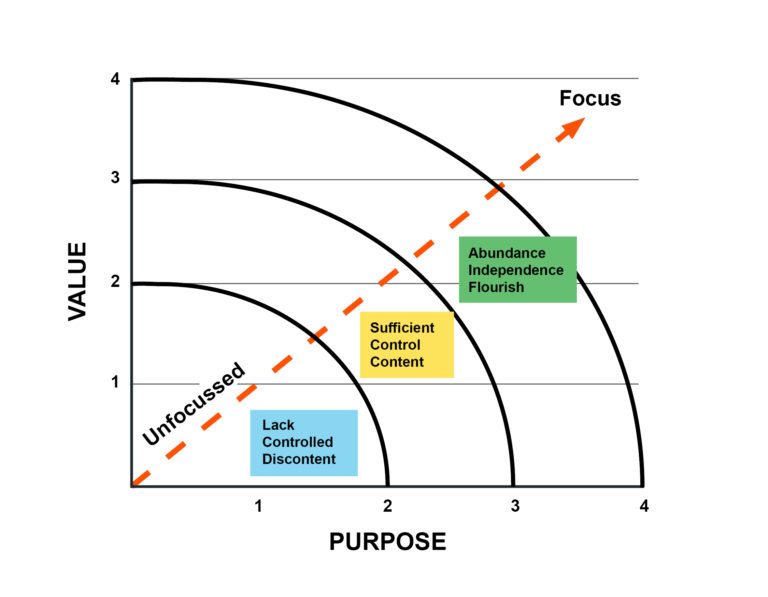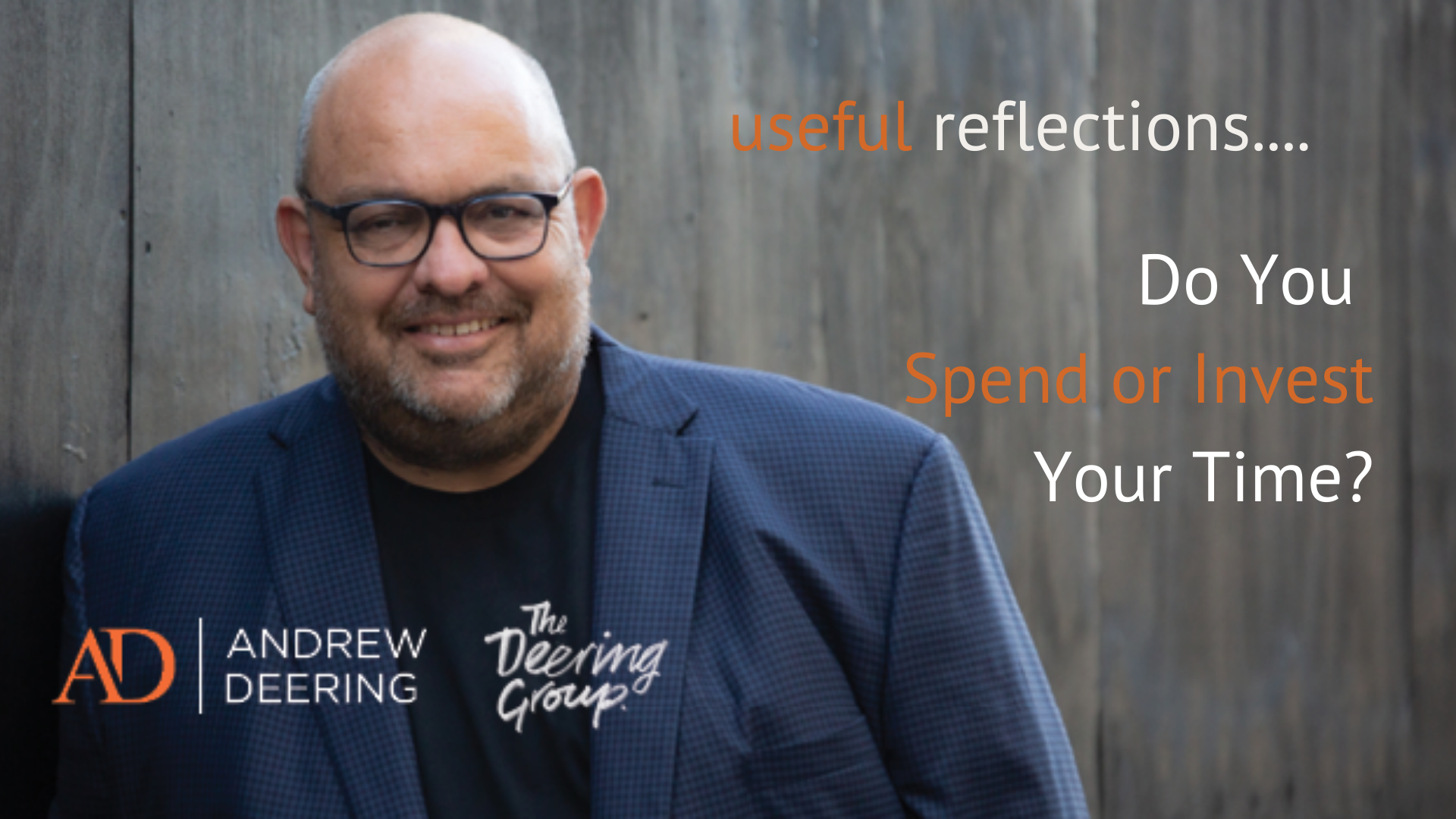You spend your time like you spend money. You can waste it or invest it.
Joel Osteen Tweet
Many years ago, I delved into the world of financial investments, educating myself on how to use money to build value over time.
I quickly discovered that one of the key elements of a sound investment strategy was not just what you invest in, but also managing what you spend your money on.
What yields the most financial benefit? And what will simply cost money and depreciate?
For example, there is a big difference between buying a property and buying a new car. Buying a property at the right place and the right time will yield a return on your investment. A car, on the other hand, loses its value over time.
The difference between spending and investing also applies to how we use our time. We can either invest our time or we can spend it.
So, what differentiates investing and spending our time? I would offer that it is our intent.
The intent behind investing is to add value and grow. When we invest our time, we are mindful of the value it brings, to ourselves and to others. It appreciates in value and, in turn, we come to appreciate our time more.
When we spend our time, we are less mindful, more flippant. We demonstrate that we appreciate it less.
As leaders, we have significant demands on our time. It’s critical we consider how we can minimise the amount of time we spend and increase the amount of time we invest.
I’m sure we’ve all heard the phrase that each of us has 24 hours a day and it’s up to us how we use it. Once that time’s gone, it’s gone. So, it’s vital we invest our 24 hours – or our 1,440 minutes or 86,400 seconds – wisely.
Time is really the only capital that any human being has, and the only thing he can’t afford to lose.
Thomas Edison Tweet
A challenge for us in this age is there are many distractions available to us. Technology presents a dizzying array of diversions that may be entertaining, enjoyable or simply distracting, but do they add value? In 2016, it was reported that Australians spent an average of 188 minutes – more than three hours a day – watching TV. In the US, adults spend an average of three-and-a-half hours a day on their mobile devices, and this is increasing every year. Is this a wise investment of our time?
As the model below shows, the value of shifting our mindset from one of spending to investing does two things: it increases the value we bring and the value others experience, and it allows us to focus on and move towards our purpose. When we are in our place of purpose, working to add value, we experience the outputs of pleasure and success.

Where you focus your energy is where you derive value. A wonderful illustration of this is US business magnate Warren Buffett – a man who certainly knows how to invest his time and money effectively. One day, Buffett’s personal pilot Mike Flint was talking to him about his career priorities. Buffett advised Flint to take a few simple steps. The first step was to write a list of his top 25 goals. The second step was to review those goals and circle his top five. The third step was to create two lists – the first being his top five goals and the second being the remaining 20.
When Flint said he would start working on his top five goals straight away, Buffett asked him, “And what will you do about the others?” Flint said, “I guess when I’m not focused on the top five, I can spend time working on those.”
Buffett replied, “No. You’ve got it wrong, Mike. Everything you didn’t circle just became your avoid-at-all-costs list. No matter what, these things get no attention from you until you’ve succeeded with your top five.”
Through this conversation, Buffett teaches us the importance of maintaining focus. Essentially, the gift of focus is elimination. What don’t you need to be doing? What diverts your time and energy from what you should be doing? What can you eliminate? We will talk about focus more in an upcoming newsletter.
You might be thinking it is too late to change too much, that you are “set in your ways.”
My belief is it is never too late. The best time to make the shift from spending your time to investing it is now. As the Chinese proverb says, “The best time to plant a tree was 20 years ago; the second-best time is now.”
Shifting towards investing your time requires effort, energy and focus, but the benefits are boundless.
So, as a leader, how do you prioritise your world to ensure you are investing your time and not spending it? Do you focus on the things that matter? Or do you allow the distractions on your list to steal your time?
Take the time to be deliberate about where you should invest your time for the highest and best return on your top five goals. Do this daily, weekly, monthly and beyond. And remember to be kind to yourself. Change takes effort, and a good investment of time. It might be worth getting a coach or mentor to support you as you begin this timely journey.
Be well, be true, be kind, be you.


